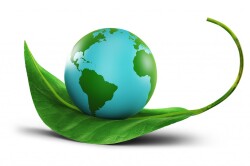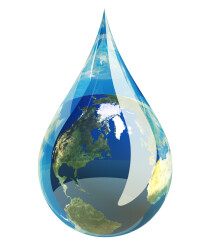ALONG WITH ALL PACKAGING MATERIALS POLYTHENE IS SEEN AS SOMEWHAT WASTEFUL AND DAMAGING TO THE ENVIRONMENT. THE REALITY IS THE EXACT OPPOSITE. AT ZARA’S PACKAGES WE ENSURE THAT WE ALSO OPERATE IN AN ENVIRONMENTALLY FRIENDLY WAY.
The packaging contains and protects goods in transit. Once the packaging has done that job, the consumer throws it away and therefore sees it as a part of a waste stream and part of the wider environmental problem. Polythene packaging is the most lightweight and durable material capable of properly protecting the goods that consumers need. Without it, the damage to our environment from unnecessary spoilage and waste would be far worse.
Packaging reduction, recycling and biodegradable plastics are of increasing interest to our customers and the general public. A large proportion of the polythene used can have a second use after fulfilling its original purpose of packaging, either through being recycled or converted to energy-from-waste, bringing additional environmental benefits. Polythene is often criticized because it is seen as a product that does not biodegrade. However, recent advances in technology now allow the production of polythene that is degradable. The primary raw material of polythene is made from naphtha gas, one of a number of by-products produced from the petroleum refinery process when distilling crude oil. Only 3% of the world’s supply of oil is used to make all plastic packaging.
Our products and processes are environmentally friendly, whilst meeting the practical needs of consumers and society. We comply fully with current legislative requirements, and we constantly monitor our processes to eliminate any unnecessary waste or by-products.
On the demand of our precious customers we use D2w in our production process to make the plastic environmental friendly.
What is d2w?
It is the brand for controlled-life plastic technology which is designed to control and shorten the
life of normal plastic products and packaging. d2w is a carefully researched and tested additive formulation which is added to normal plastic at the extrusion or casting stage of manufacture.
Symphony’s d2w formulation is so effective that it needs normally to be included at only 1%, resulting in considerable savings in cost, transport, and storage.
PE and PP are hydrocarbons, and their molecular backbones are constructed of hydrogen atoms bonded together by carbon atoms in long entangled chains. It is these long chains that provide flexibility, strength and significantly prevent oxygen from attaching to the carbon and hydrogen atoms and causing oxidation; which in turn leads to degradation.
Why choose d2w Controlled-life Plastic?
Normal plastic
• Used throughout industry. Tested and proven safe for food,
medical, farming and many other applications
• Can be re-used
• Will eventually degrade to CO2 and H2O but can take many decades
• Will not meet any degradability or biodegradability standards
• Can be recycled, though stabilizers will normally be required to replace properties lost during the recycling process
• Made from a by-product of oil, so nobody is importing extra oil to make it
d2w Controlled-life Plastic Technology
• d2w improves the excellent properties of normal plastic by controlling and reducing its lifespan and therefore making it more acceptable
• Can be re-used and recycled in the same way as normal plastic
• No change in performance and optical properties of the normal plastic product
• Low cost, because products made with d2w comprise more than 99.5% normal polymer and are made with the same machines
• Can be tested according to ASTM D6954
• No harmful residues



